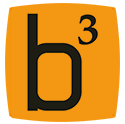Interviews – A Survival Guide
Whether this is your first-ever interview or the third this week, it is vital that you properly prepare – fail to prepare then prepare to fail!
Here is some essential advice on getting ready for a job interview and polishing your technique – things that in turn will help any interview nerves.
Pre-Interview
Do your research - find out as much as you can about the company, the role and the interviewer. Some company websites can be very useful, but also look for information on relevant industry websites. Have a look on LinkedIn for a company page as well as information on who will be conducting the interview – you might even find the person who you will be replacing.Work out which of your skills, experiences and qualifications will be of most benefit and relevance to both the job and the company (use the advert or job description as a guideline) and make sure that you can succinctly talk about them.
Getting there - know exactly where you are going including details like where to park and change for the meter.
Aim to arrive in plenty of time so you can relax. If travelling by train, then catch the earlier one - but know when the next one goes too.
Have your mobile fully charged with all the contact numbers you need (company, agency etc.) in case of problems or delays.
Make sure you look the part. Wear suitably smart clothes whilst having tidy hair and appearance. Avoid fashion extremes…
Take a couple of copies of your CV with you and ideally any relevant certificates and qualifications. A passport or evidence of your right to work in the UK can also be useful.
Prepare positive answers for interview questions that you may be asked and practise answers to anything that you’re concerned about – out loud is best. Likewise, prepare questions that you want to ask – writing them down is fine so that you don’t forget anything.
Practice makes perfect – why not ask someone to do a dummy run with you?
The Interview Itself
Relax as much as you can but don’t be laid back or over-confident and turn off your mobile!Give a nice, firm handshake, use the interviewer’s name and have good eye contact. Keep your body language open – sit up straight, lean slightly forward and try not to cross your legs or fold your arms.
If offered tea, coffee or water then at least accept the latter - don’t turn down their hospitality and, if you have a difficult question and need time to think, having a sip is a good delay tactic!
Listen carefully to questions and answer them clearly, concisely and as honestly as you can - don’t waffle! If you don’t understand something then ask the interviewer to clarify what they mean.
Be enthusiastic and positive - avoid talking negatively about previous employers. Highlight the positives of your previous roles and what you enjoyed and if necessary then briefly talk about any negatives but pragmatically and objectively.
Use positive and upbeat language remembering that body language can be just as important too. Before answering any difficult questions, pause and give yourself time to think – take a sip of that water!
Try to enjoy the interview - it’s a two-way process and they are interviewing you as much as you should be interviewing them!
At the end of the interview always ask if they have any concerns that you could clear up for them now. You can also ask them about what the next stage is and when is it likely to happen.
Finally, shake their hand, thank them for their time and also the opportunity to come and see them.
Post-Interview
Assess your performance. What do you feel went well, and perhaps more importantly, what could you have done better? What could you do next time to improve upon your performance?If the interview was arranged for you by an agency, then give them your feedback as soon as you can – they will likewise be able to give you feedback from the company. You can also relay to them any concerns or questions that you might have.
If possible then a follow-up email is strongly advised to thank them again for the opportunity and their time plus reiterate your enthusiasm for the job and the company.
GOOD LUCK!
More Information
Example Questions to Ask in an Interview
Video and Telephone Interview Guide
Blogs
How to field tricky interview questions designed to flaw you
The 5 worst things to do in an interview

